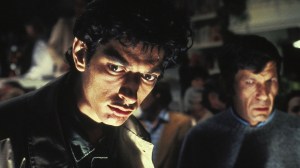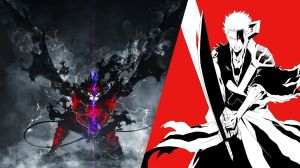One of the most effective, and sometimes frustrating, aspects of filmmaking in recent years has been that for every movie or TV series that gets made, studios are hoping that it will kick off a long-running franchise with a brand they can cash in on for years to come. For many filmmakers, this also means that they have to find a way to navigate planting seeds for future stories without explicitly requiring those continuations to exist, which allows audiences to determine whether there’s enough excitement for more stories. This hasn’t always been the case, unfortunately, and Hollywood has often delivered high-profile adaptations of beloved material that fail to catch the public’s attention.
Videos by ComicBook.com
Regardless of how beloved the source material might be or the talent involved with an adaptation, there have been a number of instances where the reception of an adaptation failed to live up to a studio’s hope and a franchise is left unresolved. While virtually every big-budget release comes with the hope that it will result in the ongoing adventures of the characters, when it’s an adaptation of a storyline that has a definitive ending, viewers are left disappointed when those entries are never brought to life.
A number of adaptations have been made that come with the possibility of a large number of follow-ups, yet nothing significant ever metastasizes outside that debut entry. In some cases, it can be even more frustrating when a franchise gets multiple entries, as it implies the initial interest from audiences and studios, but without a conclusion, we’re left having invested even more time into a storyline that won’t be resolved.
From the world of fantasy and sci-fi to YA dystopias, here are franchises that had the potential to become major forces in pop culture but were ultimately abandoned.
The Divergent Series (2014-2016)
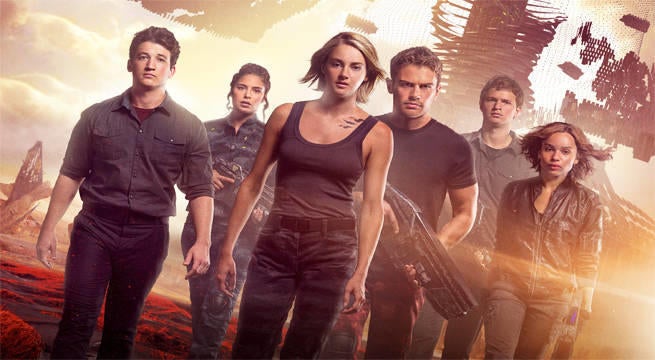
Arguably one of the most frustrating franchises to be entirely abandoned is the Divergent series based on the YA novels by Veronica Roth. The reason for the frustration isn’t because of the movies themselves being acclaimed, but because of how close the franchise got to wrapping things up.
Based on a trilogy of novels, the Divergent films aimed to capture the same excitement surrounding the YA dystopia of the Hunger Games franchise, similarly starring a crop of young stars. Like The Hunger Games, the final chapter was split into two parts, with 2016’s The Divergent Series: Allegiant only adapting the first half of the Allegiant novel.
With Allegiant only scoring 11% positive reviews on aggregator site Rotten Tomatoes and only taking in $179.2 million worldwide on a reported budget of $142 million, the conclusion was initially delayed, then announced as being made as a TV movie, and then abandoned entirely. Reports have also emerged of a TV series being developed based on the project, but no substantial progress has been made for the franchise.
The Chronicles of Narnia (2005-2010)

Based on the beloved series of novels from C.S. Lewis, The Chronicles of Narnia got off to an impressive start when The Lion, the Witch, and the Wardrobe landed in theaters in 2005. With Walt Disney Studios initially behind the franchise, the debut film featured impressive effects, a talented cast, and was poised to carry on the legacy of fantasy blockbusters in the wake of the conclusion of The Lord of the Rings franchise.
The Lion, the Witch, and the Wardrobe took in $745 million worldwide, an impressive number for any film, seemingly confirming the franchise’s future, and also earned 76% positive reviews on Rotten Tomatoes. With subsequent films Prince Caspian in 2008 and The Voyage of the Dawn Treader in 2010 only taking in just over $400 million worldwide each, general audiences had clearly lost interest outside of the iconic debut entry.
In addition to the public losing interest in the big-budget series, the rights to the franchise were renegotiated in 2011 and in the years of attempting to find a new way to move forward with the franchise, Netflix entered the picture with plans to reboot the storyline as a TV series. With Lewis having written seven books in the franchise, the cinematic franchise will likely never be completed and, while a revival of the project will eventually come together, it looks to be an entirely fresh approach.
Percy Jackson (2010-2013)

Following in the footsteps of the massive success of the Harry Potter films, 2010’s Percy Jackson & the Olympians: The Lightning Thief introduced audiences to a world in which classic gods walked among us, featuring a promising young cast. The franchise was based on Rick Riordan’s series of novels, which had a passionate fan base.
The Lightning Thief was a modest success, taking in $226.5 million worldwide, though Fox 2000 Pictures likely hoped that this first film would help introduce audiences to the mythological world and it would grow in popularity over subsequent entries. The second film, 2013’s Percy Jackson: Sea of Monsters, also failed to spark much global appeal, taking in only slightly more than $200 million worldwide, with both entries also failing to excite critics.
Despite the built-in following of the book series and the tease of a third film in Sea of Monsters, the live-action series remained dormant for years. With the movies being based on the five-book storyline, the franchise never crossed the halfway point before being abandoned. Luckily, a reboot of the series is on the way from Disney+, which is expected in 2024.
Millennium Trilogy (2011)
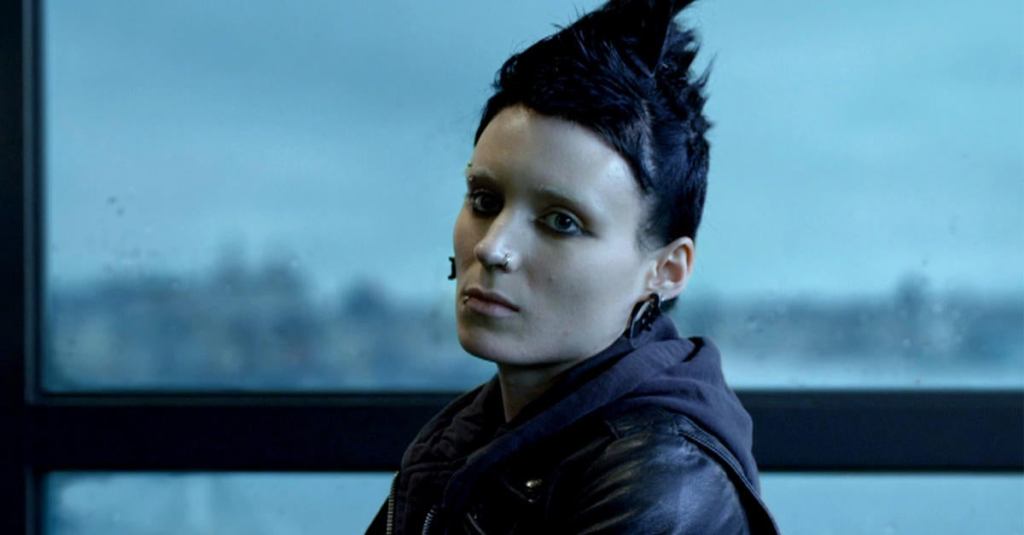
Swedish author Stieg Larsson wrote an acclaimed trilogy of true-crime novels The Girl with the Dragon Tattoo, The Girl Who Played with Fire, and The Girl Who Kicked the Hornets’ Nest, which were then adapted into a trilogy of films. Starring Noomi Rapace as Lisbeth Salander, the films saw Lisbeth investigating a series of brutal crimes, conspiracies, and cover-ups. Both the original trilogy of books and film trilogy were well-regarded, resulting in the announcement of an American reboot of the property.
David Fincher helmed The Girl with the Dragon Tattoo starring Rooney Mara and Daniel Craig, which earned strong critical reactions and awards recognition for Mara, though had a relatively tame box-office performance, taking in $232.6 worldwide. Even though the Swedish films and source novels were successes, the tepid financial performance of the debut American film prevented any significant momentum for the project from developing. Fincher has since claimed that, despite there being initial plans to develop the subsequent two films in the trilogy with Mara, his immersive filmmaking approach saw him lose interest in committing years to filming the grim stories in Sweden.
Even though the trilogy of original novels was never completed, the fourth book in the series, The Girl in the Spider’s Web, was adapted with Claire Foy taking over the Lisbeth Salander role. Larsson passed away in 2005, with the original trilogy of novels being the only books in which he is the sole author. While four other novels have since been released in the series, potentially allowing for other adaptations to be developed in the future, the Fincher-directed trilogy looks to remain unfinished.
His Dark Materials (2007)
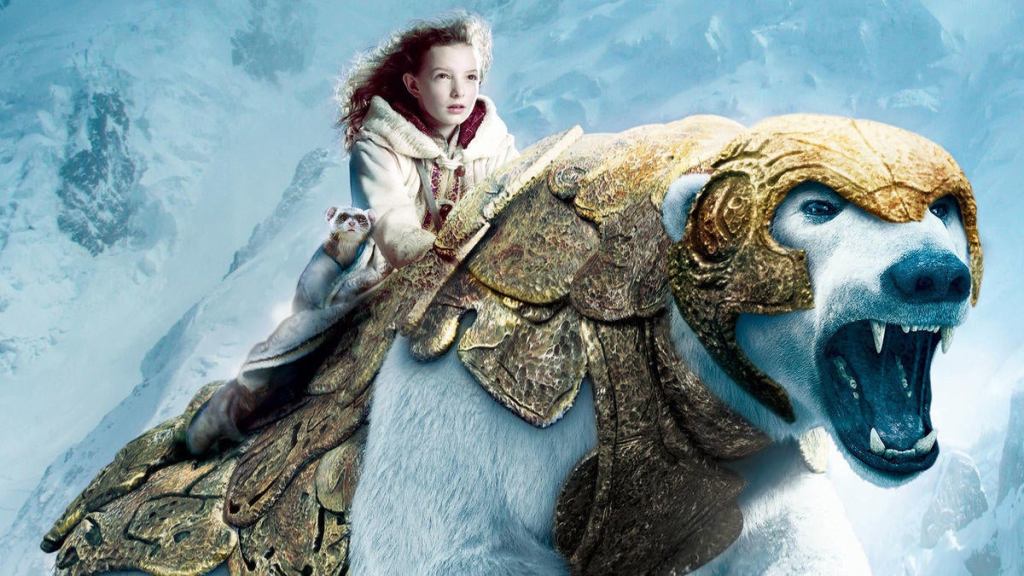
The Harry Potter and The Lord of the Rings films in the 2000s saw a wealth of fantasy projects start to be developed for the big screen, which includes the development of 2007’s The Golden Compass.
The first adaptation of the His Dark Materials novels by author Philip Pullman, the blend of magic and massive creatures initially ignited a number of comparisons to the Chronicles of Narnia cinematic series. Even with the popularity of fantasy stories at the time and impressive stars like Nicole Kidman, Daniel Craig, Eva Green, and Sam Elliott, neither the financial nor critical performance compared to the Chronicles of Narnia films and the first of three planned films was an overall disappointment. Additionally, many fans felt the movie missed the mark on a number of key themes from the source material, ultimately feeling like an opportunity to cash in on a brand as opposed to an attempt at faithfully adapting it.
In 2019, HBO debuted the TV adaptation His Dark Materials, which concluded with Season 3 in 2022.
The Inheritance Cycle (2006)
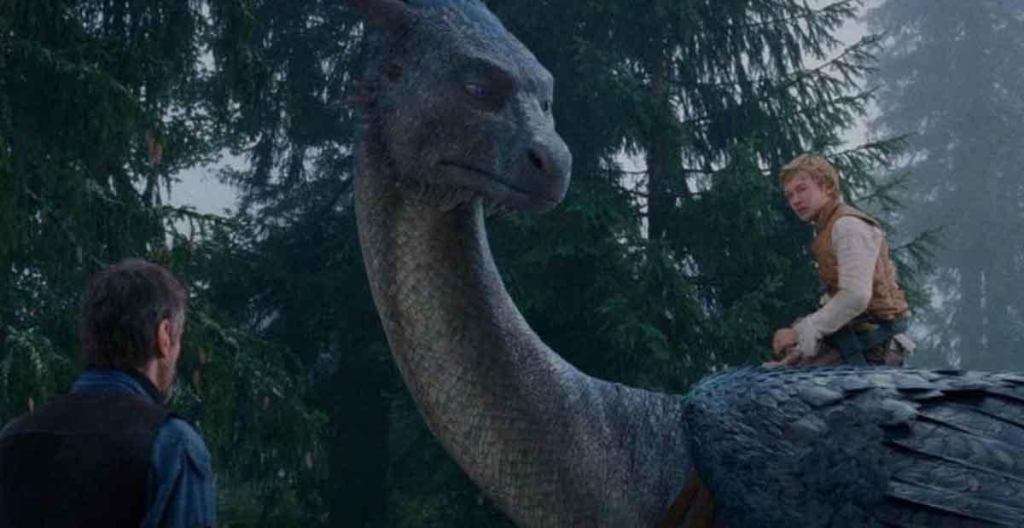
Yet another attempt to embrace the fantasy trend of the 2000s, Eragon aimed to bring to life author Christopher Paolini’s “The Inheritance Cycle” storyline, which had consisted only of the novels Eragon and Eldest at that point. Two more novels, Brisingr and Inheritance, have since been published, with a fifth book set to be released later this year.
Eragon didn’t feature the same A-list talent of other fantasy films at the time, but still managed to take in $249 million worldwide. Even with that promising financial performance for what was to be the first entry in an expanded franchise, its critical reactions were pretty rough, sitting at only 16% positive reviews on Rotten Tomatoes. No substantial momentum on a follow-up progressed, but similar to Percy Jackson, an Eragon TV series is on the way from Disney+.
Independence Day (1996-2016)
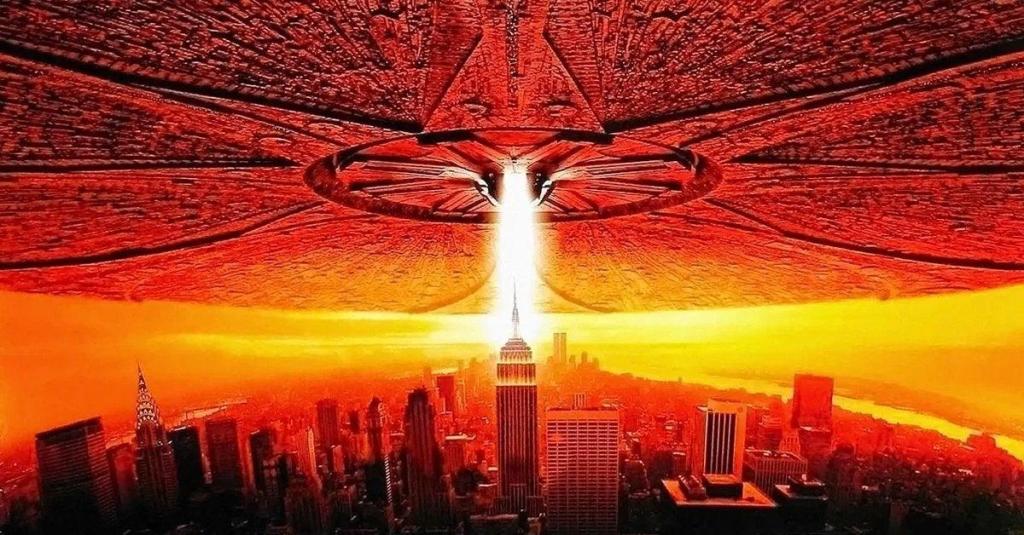
The original Independence Day is one of the biggest hits of the ’90s and remains a beloved summer blockbuster, thanks to its compelling stars and heart-pounding action. For the most part, audiences were happy with just how successful this one film was, though filmmakers Roland Emmerich and Dean Devlin had teased sequels for years.
Not only did the pair reveal they wanted to make a follow-up, but also that there would ultimately be an Independence Day trilogy, which would have brought back original stars Will Smith, Bill Pullman, and Jeff Goldblum. During the development of Independence Day: Resurgence, Smith exited the project, forcing the sequel to undergo major rewrites. Resurgence fell short of expectations critically and financially, and even though there was a direct tease of a third film, Emmerich and Devlin have cast major doubt on ever completing the trilogy.
Clash of the Titans (2010-2012)
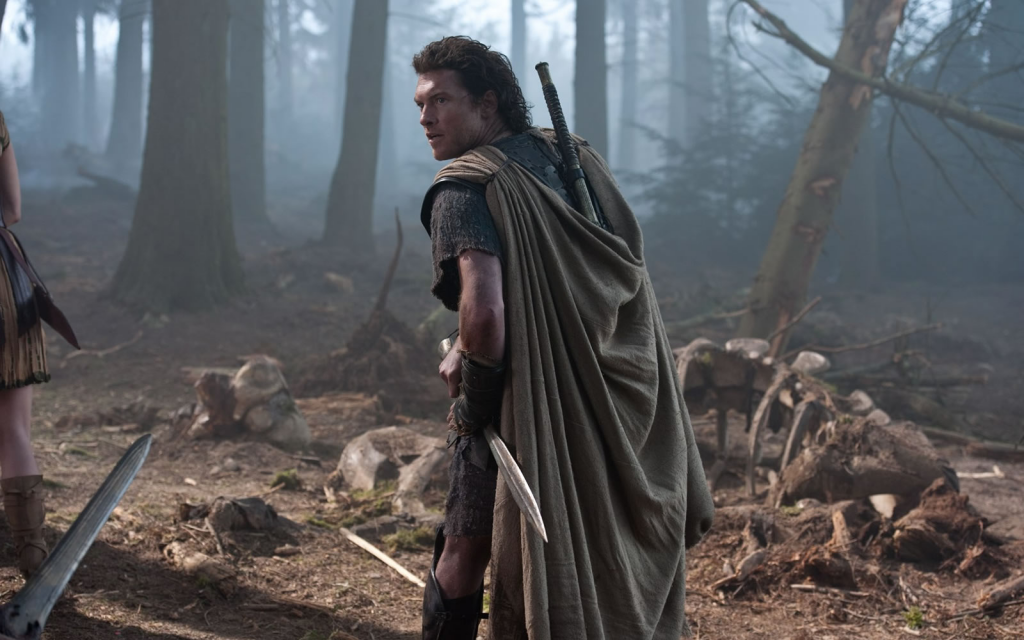
The 1981 Clash of the Titans brought to life a number of iconic Greek myths for a fantastical adventure, channeling the spirit of 1963’s Jason and the Argonauts and its stop-motion special effects. The 2010 Clash of the Titans utilized countless advances in visual effects to similarly depict these myths, but with much more bombastic cinematic techniques.
Even with its underwhelming critical response, the timeless nature of Clash of the Titans saw the film take in $493.2 million worldwide. Not only did that success result in the development of the sequel Wrath of the Titans, but a third film, Revenge of the Titans, was also announced. With Wrath opening to poor critical reactions and only taking in $305.2 million worldwide, while having a reportedly higher budget than the original, Revenge stagnated and is expected to be scrapped entirely.
The Clash of the Titans reboot series isn’t the only big-budget franchise to only earn two entries while not having a specific source material it aimed to conclude, the fact that a third film was already announced and the implication of a trilogy being made, only to be left incomplete, feels worth noting.
John Carter of Mars (2012)
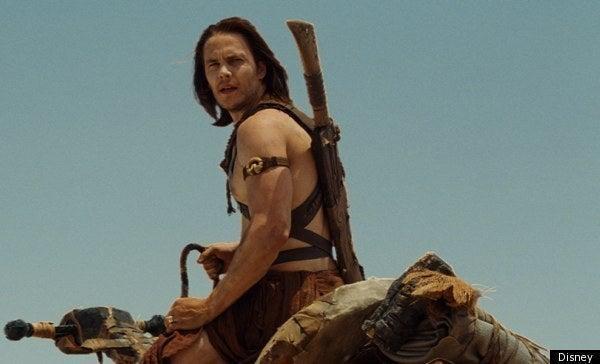
Prior to Disney purchasing Lucasfilm and its Star Wars franchise, the studio aimed to develop its own sprawling sci-fi saga by adapting the beloved “Barsoom” series by author Edgar Rice Burroughs. John Carter was based on A Princess of Mars, the first storyline in the long-running serial.
The big-budget spectacle had a reported budget around $250 million, so when it only took in $284 worldwide, it was largely considered a commercial failure. The critical response didn’t fare much better, as it sits at 52% positive reviews on Rotten Tomatoes. The film was originally titled “John Carter of Mars,” after the book of the same name in the series, though the filmmakers dropped the “of Mars” in order for John Carter to showcase how the character earned the moniker.
A sequel based on Burroughs’ The Gods of Mars was reportedly being developed prior to the release of John Carter, but the poor financial and critical reactions prevented any follow-up from moving forward.
The Mortal Instruments (2013)
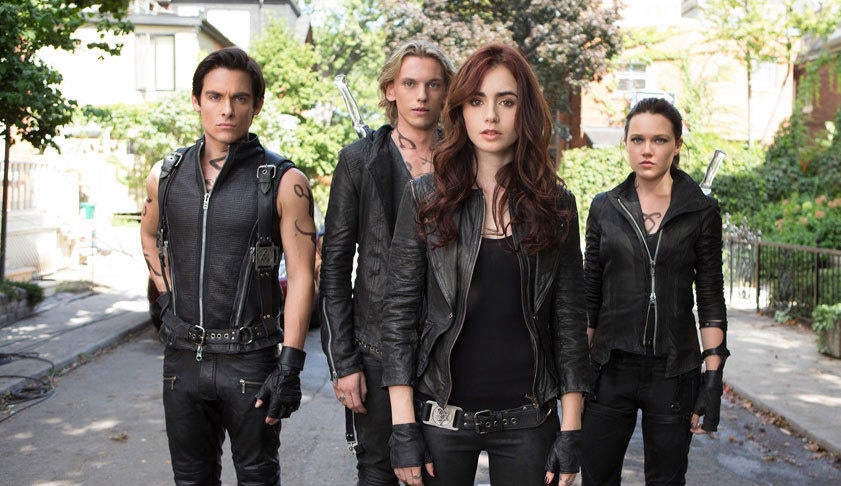
From author Cassandra Clare, The Mortal Instruments brought together various genres, from YA romance to horror to fantasy, making for a popular series of books. In 2013, The Mortal Instruments: City of Bones marked the first cinematic adaptation of the concept, following in the footsteps of the popularity of the Twilight adaptations.
Even with its inherent storytelling potential of a sprawling mythology, City of Bones was a failure with both audiences and critics. The movie took in $90.6 million at the global box office and only sits at 13% positive reviews on Rotten Tomatoes. Between its established fan base and the dense mythology of the source material, the sequel The Mortal Instruments: City of Ashes was announced to be moving forward before the release of City of Bones and Sigourney Weaver was already attached. The disappointments of City of Bones, however, saw the sequel scrapped and the cinematic franchise dissolved entirely.
The narrative instead pivoted to the TV series Shadowhunters, which premiered in 2016 and ran for three seasons.
Which franchises do you wish were completed? Let us know in the comments!

